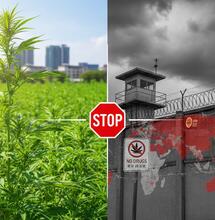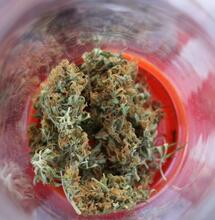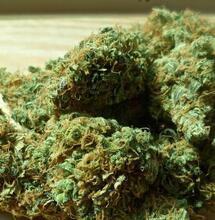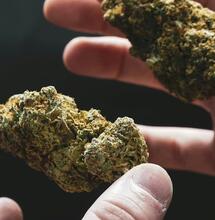Is CBD a Marketing Ploy?
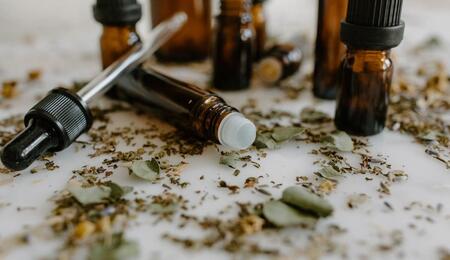
You are probably well aware that these days CBD is marketed in ways that show it can help for just about any health or beauty problem a person might have. While there are numerous therapeutic benefits from CBD, it is good to stay cautious and not be naïve that this is some sort of ‘miracle drug’ that can push to the end any health-related problem. It is also true that when a product is very popular, everybody wants to make money out of it.
There is a lot of marketing about CBD being able to help you with this and that. It’s billed as good for your acne as is for your heart health. Which pulls the next question: is CBD a legitimate wellness aid or just clever marketing? The answer is probably floating somewhere in-between. Every time a new product arrives on the market, especially in the health and wellness sector, there’s an avalanche of positive advertising about it, before the ‘storm’ passes and people get a clearer picture about what the product’s best uses are. For CBD, we also need further research about some of the claims being made.
The primary non-psychedelic cannabinoid, which is usually extracted from hemp cultivars, can produce a variety of therapeutic effects, but it won’t by-default substitute for certain medicines. There are health conditions that require doctor’s attention, check-ups and follow-ups. In some cases, CBD may not be considered or recommended to use in therapy. Marketing might create the image of the opposite.
CBD is Competitive Market and Businesses Do Want to Differentiate
A beauty company will say that their CBD cream is superior for skin care or anti-aging, or that their hemp-based hair product can treat alopecia and improve hair count. Claims like that are often made by companies so that they can stand out from the rest. It probably happens more often than we think.
For some of the assertions made there’s actually only a small body of scientific evidence that Cannabidiol can actually be of any benefit. Evidence can also be anecdotal, word of mouth - it did help someone, but it may not necessarily help you. The art of marketing is no stranger to spinning off. It can go into exploitive zones that play on people’s emotions or fears, and the selling story becomes what the target audience wants to hear. This has been consistently seen with marketing in the past - and the same might be happening with CBD as well.
Another frequent-enough problem is inaccurate information featured on the labeling of marijuana and hemp goods, for which there is evidence. Even with strict regulation in place, anything goes on the labels and product descriptions. If a company cannot get it right how much CBD or THC is in their product, there are good chances of other mishaps, right?
Finally, the sheer availability of CBD products - which is not necessarily a bad thing - further adds up to the impression that this is some sort of ‘cure-all’ medicine - which would be wrong. But marketing and enthusiasm often rush ahead of science.

Evidence Might Be Lacking for Some Conditions Where It Says CBD Can Work
CBD or Cannabidiol could improve various health outcomes, but we still need more knowledge - even where we know CBD is good. This is important for creating more effective therapies and learning about the complete safety profile of CBD.
There’s also so much we don’t know. Such as how CBD interacts with a range of other drugs that a medical patient might be taking. For example, do we know anything about contraindications from CBD in a rheumatic patient who’s been on conventional therapy for decades? Could CBD actually worsen their symptoms? Let’s leave those answers to health professionals and researchers.
Below, take a look at some of the health conditions where it’s proven CBD is beneficial and there’s sufficient research data about it. Good to know when choosing products!
- CBD can reduce symptoms of mental health disorders (such as symptoms of anxiety and depression presenting in patients with mood disorders or PTSD).
- It can help with certain cancer-related symptoms (typically side effects from cancer treatments like nausea, vomiting and pain).
- It can be used as treatment for epilepsy (including rare epilepsy syndromes seen in children - the first FDA-approved CBD drug was for epilepsy).
- It can help with pain and inflammation (as seen in rheumatic diseases).
- It can show improvements in neurological conditions (such as Parkinson’s disease or Huntington’s disease).
- May be beneficial for people with heart problems (CBD can impact heart muscle contractions and widen blood vessels).
Indeed, CBD can be helpful for a broad range of medical conditions, but in many instances - especially among patients with more complicated health status and among the elderly - it should not be taken voluntarily or without seeing and consulting a physician.
Typical CBD Branding Would Not Associate CBD with Getting High or Marijuana
While it’s well-known that CBD does not produce ‘high,’ it’s interesting to note it down as one of the main aspects of branding and marketing used by companies. It feels like no one wants to relate CBD products with intoxication or with marijuana altogether, despite it’s the same family of plants in question. To acknowledge that CBD meds come from the same plants that were prohibited for so long would be damaging to the ‘ideal’ picture around the wellness product.
CBD is promoted in front of a larger target group, which may include seniors who’ve been marijuana opponents for most of their life. CBD marketing is soft and comfortable. It is less often communicated in advertising that sometimes the optimal effect from Cannabidiol is delivered through a combination with THC. Specific solutions that combine the two are in fact particularly successful for some diseases - an example being the Sativex spray for muscle spasticity in people living with Multiple Sclerosis.
The takeaway of all of this? Shortly, it’s good to stay wary. Don’t believe everything you hear or read. CBD is a legitimate wellness agent, but often is a complementary part of the medical treatment. Make informed decisions when buying CBD products. Look for trusted brands that do not make sensational claims, and avoid suspicious websites! Preferably choose products for which you’ve seen or heard testimonies from a real person that it has helped them.
Also read on Soft Secrets:





